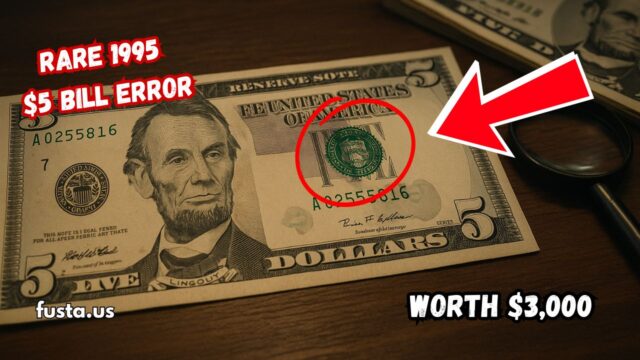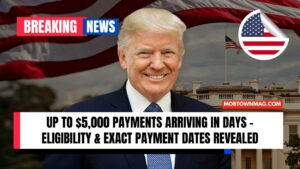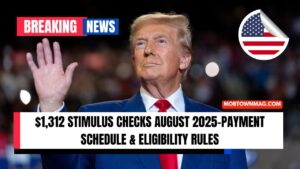What if the $5 bill in your wallet could be worth hundreds or even thousands of dollars? While most people see a five-dollar note as just everyday money, a rare 1995 $5 bill with an inverted seal error has turned into a collector’s treasure.
This mistake during printing transformed a common piece of paper money into one of the most sought-after collectibles in U.S. currency history.
In this article, we’ll explain what makes this bill so special, how to identify it, its value in 2025, and tips from currency experts to protect and sell it.
What Is the 1995 $5 Bill with Inverted Seal?
The 1995 $5 Federal Reserve Note was printed by the U.S. Bureau of Engraving and Printing. During one of the printing stages, a batch of bills was accidentally produced with the green Treasury seal printed upside down.
This mistake is called an inverted seal error. Instead of being destroyed, a small number of these bills entered circulation. Today, they are considered a rare collectible, and collectors are willing to pay large sums to own one.
How Did This Printing Error Happen?
Producing U.S. currency involves several printing steps. In 1995, during the final stage when the Treasury seal was applied, a misalignment caused the seal to be rotated 180 degrees.
Instead of catching and destroying these error notes, some slipped through the system and were released into circulation. Over the years, these bills became a quiet treasure hunt for collectors.
Why Is It So Valuable in 2025?
The value comes from three key factors:
- Rarity – Fewer than 500 examples are estimated to exist.
- Condition – Crisp, uncirculated bills bring in the highest prices.
- Collector Demand – Error notes attract strong attention in the numismatic (currency collecting) community.
While a regular 1995 $5 bill is worth only face value, the inverted seal error note can sell for hundreds or even thousands of dollars.
Value of the 1995 $5 Bill with Inverted Seal
Here’s a comparison of values in 2025 depending on condition:
| Condition | Estimated Value | Notes |
|---|---|---|
| Circulated | $250 – $800 | Value depends on wear |
| Crisp Uncirculated | $1,200 – $3,000 | Highest collector demand |
| Star Note + Error | $2,500+ | Extremely rare combination |
Star Notes are bills with a small star symbol next to the serial number. When combined with an error like an inverted seal, they can be worth even more.
How to Check If You Have One
Finding out if your bill is valuable is simple:
- Hold your 1995 $5 bill upright.
- Look at the green Treasury seal on the right-hand side.
- If the seal is upside down compared to Abraham Lincoln’s portrait, you have an inverted seal bill.
Congratulations — you may be holding a note worth hundreds or thousands of dollars!
Famous Finds and Record Sales
Many lucky people have found these bills in old wallets, inherited collections, or even from bank withdrawals.
- A high-grade example sold for $2,750 at a Heritage Auctions event.
- Collectors report strong demand, especially for uncirculated examples.
- Even circulated notes fetch strong prices due to their scarcity.
Rare 1995 $5 Bill
| Fact | Detail |
|---|---|
| Year Issued | 1995 |
| Denomination | $5 |
| Error Type | Inverted Treasury Seal |
| Collector Demand | High |
| Known Examples | Fewer than 500 estimated |
Tips from Currency Experts
If you think you own one of these rare bills, follow these tips:
- Protect the Condition – Store in acid-free currency sleeves.
- Authenticate Properly – Get it graded by PMG or PCGS.
- Never Clean It – Cleaning reduces collector value.
- Sell Smart – Auction houses often bring in higher bids compared to private sales.
The 1995 $5 bill with an inverted seal is more than just money — it’s a piece of U.S. history and a rare collector’s item. With values ranging from $250 to over $3,000, it proves that even small mistakes can create big rewards.
So next time you get change, take a closer look. That ordinary-looking bill in your wallet could actually be a hidden treasure waiting to be discovered.
FAQs
Can banks exchange this bill for face value?
Yes, banks will exchange it for $5, but that would be a huge loss. Collectors pay much more, so always sell to collectors instead.
Is it legal to own error currency?
Yes, owning currency errors is completely legal. Collectors actively buy and sell them.
Do modern bills have inverted seals?
Rarely. Printing quality checks today are stricter, so inverted seal errors are far less common.




